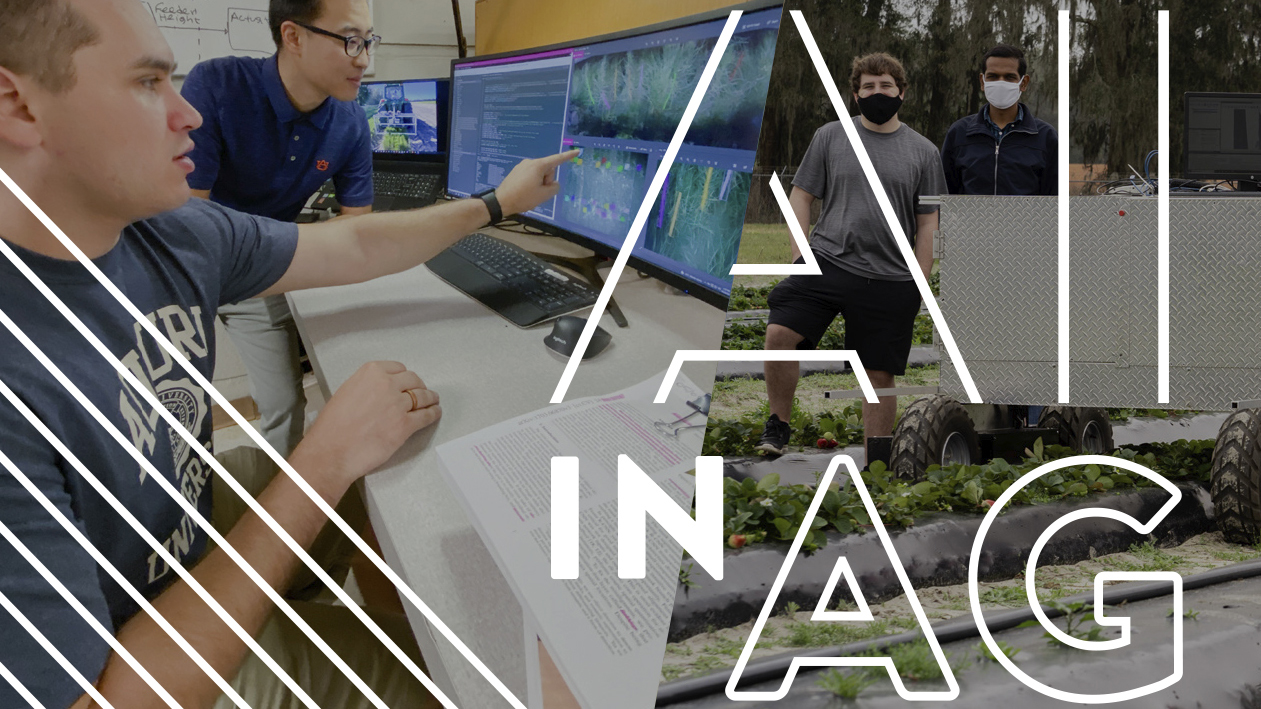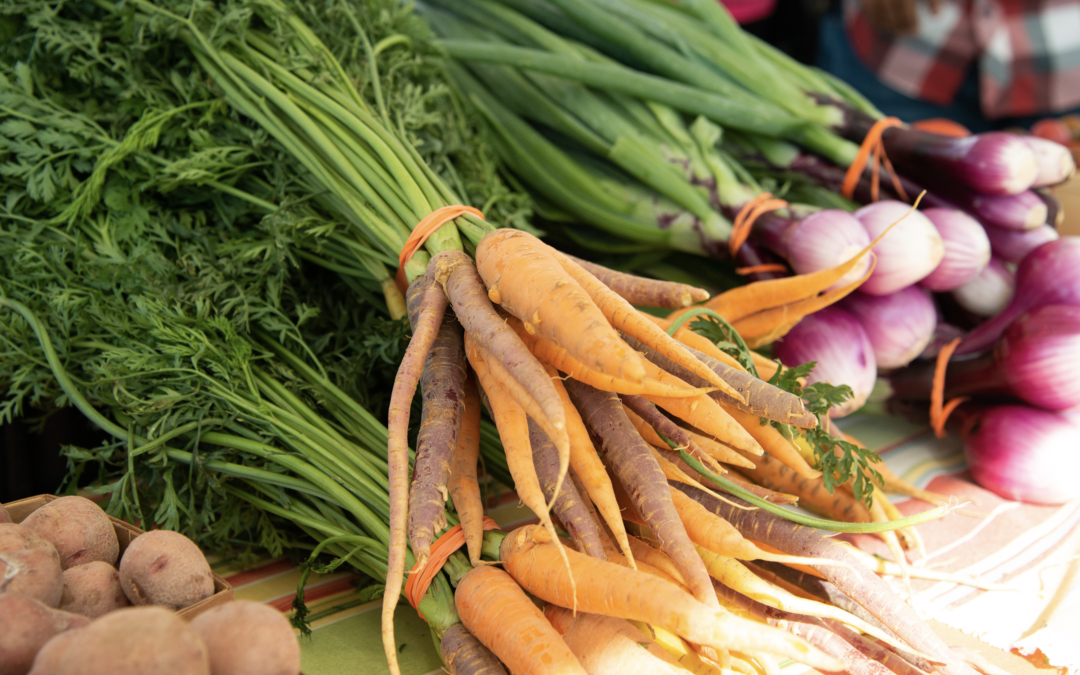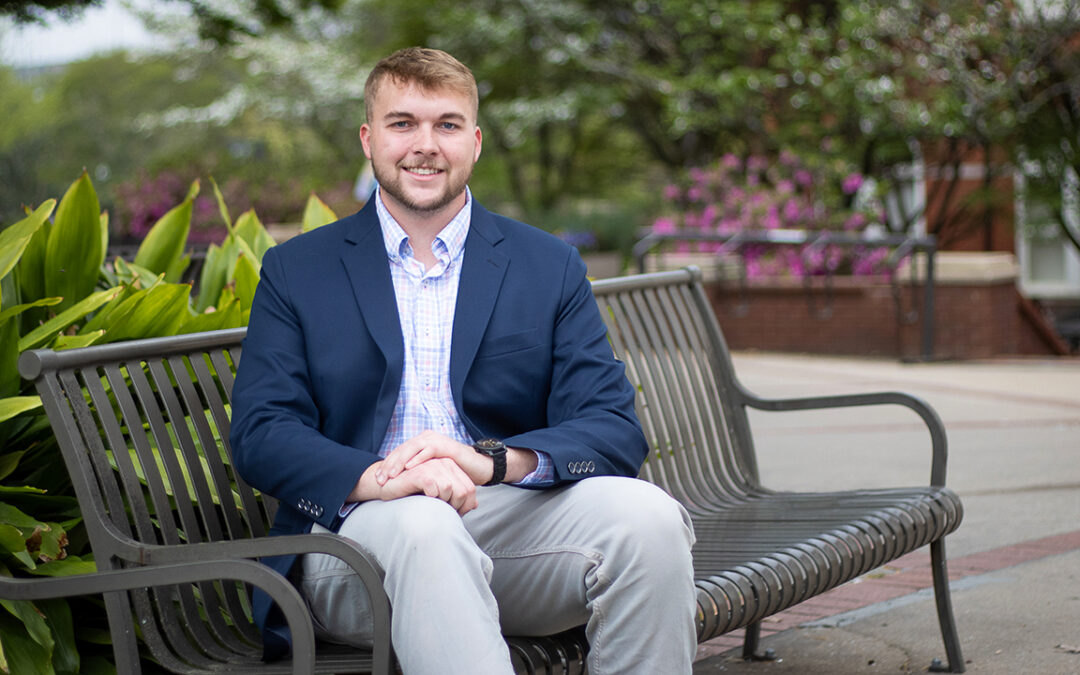Artificial intelligence (AI) support systems, automation and robotics have the potential to transform agriculture. A group of Southeastern universities is coordinating a conference to address this potential at Auburn University in the spring.
Titled “Envisioning 2050 in the Southeast: AI-driven Innovations in Agriculture,” the conference will be held March 9-11, 2022, at the Hotel at Auburn University and Dixon Conference Center. It is a joint effort from all the land-grant universities in the Southeast with funding from the USDA National Institute of Food and Agriculture.
“This conference is multipurpose,” said Brenda Ortiz, co-organizer of the conference and professor and extension specialist in the Department of Crop, Soil and Environmental Sciences at Auburn. “The primary purpose is to share knowledge, expertise and resources among Southeastern universities, stakeholders and industries on artificial intelligence-driven innovations that can be applied to agriculture.”
Ortiz said the aim is also to provide a space where university faculty, industry members and stakeholders can discuss how artificial intelligence innovations, automation and robotics could strengthen agricultural production, bolster environmental sustainability, and increase resiliency. Invited speakers from academia, the federal government and the industry itself will share their work in areas such as crop production, plant and animal breeding, climate, agricultural extension, pedagogy, food processing and supply chain, livestock management and many more.
This two-and-a-half-day conference will include a combination of invited plenary presentations, two-panel sessions, and breakout sessions that include invited oral presentations, facilitated working sessions, a poster session, and a pre-conference workshop on current and advanced AI-driven data analysis.
Kati Migliaccio, co-organizer of the conference and professor and chair of the Department of Agricultural and Biological Engineering at the University of Florida, said the timing of the conference is perfect.
“This is an opportune time to host this conference focusing on AI in agriculture in the Southeast because of the resources invested in AI, the state of innovation of AI in agriculture, and the critical need to adapt agriculture for current world challenges, including labor, nutrition, energy and climate,” she said.
“It brings together expertise from all sectors — industry, academics, government and stakeholders — to focus on agriculture innovation with AI particularly for the Southeast,” Migliaccio continued. “The format of this conference was created to allow for knowledge sharing as well as networking and greater exploration for future endeavors. Attending this event will provide the ‘spark’ for further innovation and collaboration amongst those with AI and agricultural interests across professions and across disciplines.”
University faculty and students, industry members, and representatives of different stakeholder groups will share expertise, vision and needs for the development of AI-driven agriculture in the Southeast. Participants will also learn about the development of AI in agriculture at various universities and the growth of resources, infrastructure and personnel available for AI and related technology in agriculture and natural resources.
Ortiz said in-person participation will allow networking, discussions for future collaboration and first-hand knowledge exchange. Registration is open and limited based on space availability. For those who cannot attend in person, a limited, virtual option will be available that will include access to plenary and breakout sessions.
Graduate students and postdoctoral scientists are also welcome, Ortiz said, and invited to submit abstracts to the poster presentation. Submissions must be made by Jan. 17, 2022.
Ortiz said she would encourage her peers to attend to better learn advances in artificial intelligence-driven applications in agriculture not only across the Southeast, but across the nation, and to explore opportunities for collaboration among others breaking this same ground.
“This is an opportunity to be part of a regional effort to outline and design the future of agriculture and discuss the role of technology and innovation,” Ortiz said. “Artificial intelligence is gaining traction and momentum in agriculture, but there is potential still to be tapped.”





